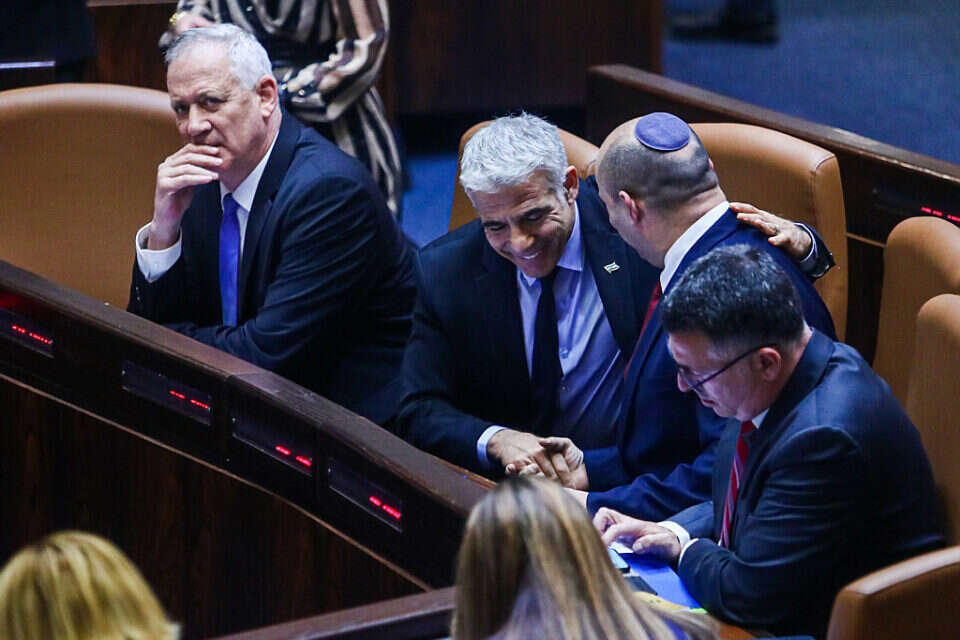"The political division today," the foreign minister said some time ago on the Knesset podium, "is between those who believe in democracy and those who are tired of democracy."
What is beautiful about this statement, as with many statements made in the political arena, is that it can serve both parties equally: Coalition members believe wholeheartedly, or at least thus declare, that they are defenders of democracy.
Its right-wing persecutors and opposition loyalists, myself included, also firmly believe that they are the defenders of democracy, and that the opposing side boasts of it only when it is convenient for it and when it serves it.
We will now leave these debates and approach another examination of the state of democracy, and it is the question of how much democracy the parties themselves, both in the coalition and in the opposition. Note the following forgotten statistic: In most of the factions that make up the coalition, five out of eight, all decisions are made by one person. In all these factions, the list of Knesset members is in the hands of, well, one person. In all these factions, in order to win a real place in the next Knesset, I have to like, well, one person. None of them have institutions that get a decision for the most part, none of them have systems that even mention a little bit the basic thing for which we came together: democracy.
There is a future, right, Yisrael Beiteinu, new hope, blue and white. These are all parties that are actually their chairman and a few others. Most of the coalition bloc's building is actually nothing more than a fairly small meeting room. Left a meeting room: the WhatsApp group. For old and well-established parties, democratic institutions that democratically elect candidates for the Knesset and approve or ratify decisions, and also RAAM, which even if it does not have an official democratic procedure - it still boasts a broad council that makes decisions. But most of the bloc is run exclusively by party leaders, while Knesset members, senior and junior, are dragged after them like orphaned and meaningless fingers.
The main opposition party, the Likud, elects its representatives through nationwide primary elections, in which tens of thousands vote.
Is this method good?
Not at all.
She's not perfect and she orders locks, crates and buses.
But she is supremely democratic.
Likud functionaries have a voice and teeth, and they can, democratically, influence decisions.
Coalition members can talk until tomorrow about dictatorship and empire and other nonsense, but they too know that in the end primaries are a democratic process, and Zetalach - no.
point.
Religious Zionism also holds primary elections.
Shas and Torah Judaism do not hold elections, but submit the decision to a broad forum of rabbis and leaders. The degree of democracy of this procedure can be debated, but it is in any case more democratic than decisions made by one person.
This is an unprecedented situation, dangerous to democracy and especially shameful.
When it happens in one faction, small, new, from a large bloc - it may be tolerable.
But not when it is common to most coalition factions, and becomes the main characteristic of a camp that claims to "defend democracy."

